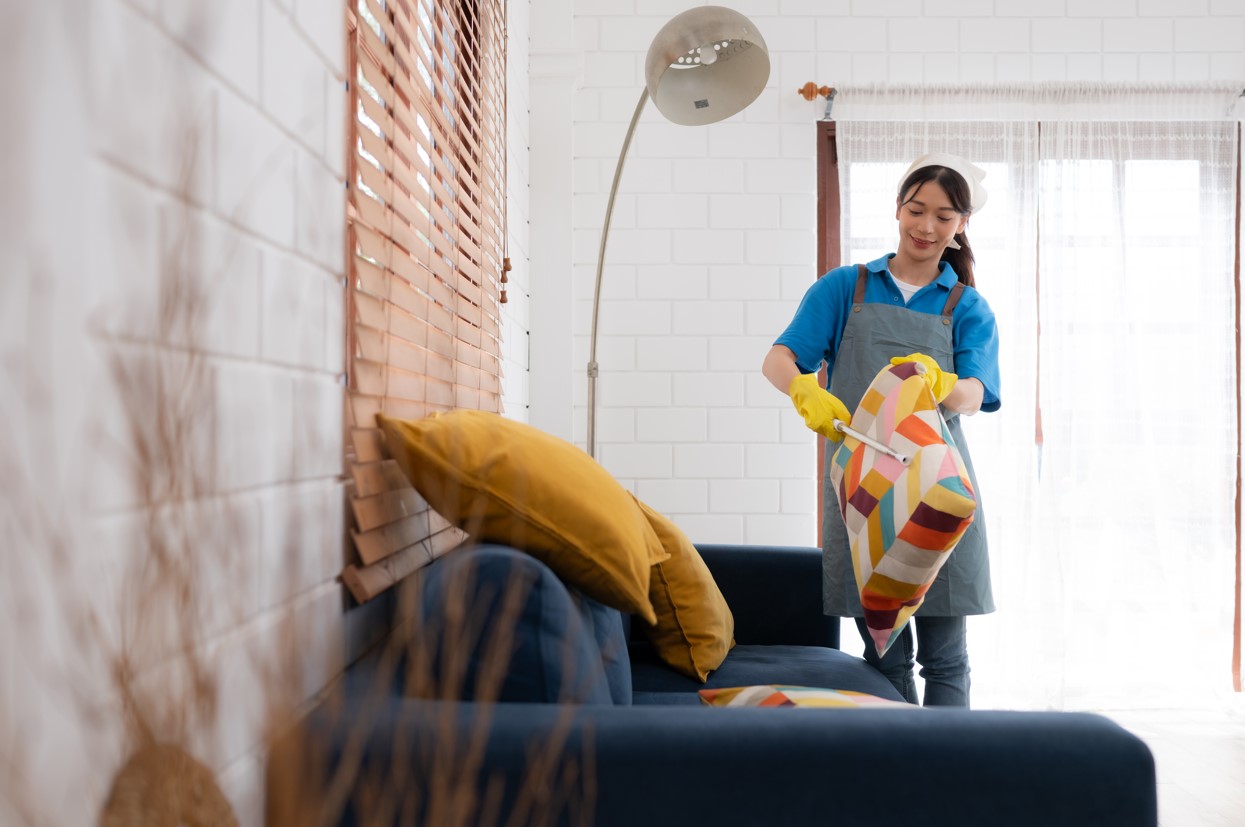
You clean regularly. Floors are spotless. But mornings start with sneezing. That tells a different story. Allergens don’t vanish with vacuuming alone. Dust mites remain in fabrics. Curtains. Cushions. Rugs. Turkish allergy clinics warn patients: surface cleaning isn’t enough. The reaction begins deeper, not where you think.
Your pillow feels clean, but it holds months of invisible buildup
You change the cover weekly. Still, your eyes itch at night. Pillows hold sweat, skin cells, mites. Washing the case doesn’t touch the core. Allergy experts in Türkiye recommend washing pillows every three months. Not just covers. Or replace them entirely every two years.
Opening windows helps airflow, but lets pollen inside
Fresh air feels good. Especially after winter. But spring winds carry pollen. You ventilate the house. Then your sinuses swell. It’s a trade-off. In Turkish coastal cities, patients are told to air out during low-pollen hours. Early morning. Late evening. Not during full bloom.
You use scented sprays, but the air feels heavier afterward
You want freshness. So you spray. But the air thickens. Breathing gets strange. Many scented products contain volatile organic compounds. These irritate sensitive noses. Turkish pulmonologists often link household fragrances to nonallergic rhinitis. The solution? Less scent. More ventilation.
You dust often, but never wipe the top of cabinets or doors
You clean eye-level. Table. Counter. But door frames? Cabinet tops? Often missed. Dust settles in layers. Invisible but irritating. Turkish allergy specialists call these “static zones.” Wiping them monthly makes a noticeable difference. Especially in bedrooms and kitchens.
Your dog stays indoors, but sneezing starts when they lie on your bed
You love your pet. But every cuddle ends in congestion. Pet dander sticks to fabrics. Carpets. Bedding. Not just fur—proteins from skin and saliva. Turkish veterinarians suggest designating pet-free zones. Especially bedrooms. And using HEPA filters in shared spaces.
You wash your bedding weekly, but not with hot enough water
You’re diligent. Sheets cleaned every Sunday. But symptoms remain. Temperature matters. Washing at 30°C won’t kill dust mites. Allergy clinics in Ankara advise 60°C minimum. Add an anti-allergen detergent if needed. Warm isn’t enough. You need heat.
Mold hides in corners you never thought to check
You see no stains. Smell nothing odd. But your bathroom ceiling feels damp. Mold doesn’t always announce itself. Turkish home inspectors often find spores behind tiles. Under sinks. Even behind wallpaper. It starts subtle. But once noticed, it spreads fast.
Your child plays on the rug, and their eczema flares up at night
They don’t roll in dirt. But their skin reacts. Rugs trap allergens easily. Especially synthetic ones. Turkish pediatric dermatologists recommend removing rugs in kids’ rooms. Or switching to low-pile, washable types. Clean floors help irritated skin breathe.
You use air purifiers, but forget to change the filters
The machine hums quietly. But dust lingers. The filter hasn’t been changed in months. It’s full. Useless. Turkish households often skip this step. But clogged filters release allergens back into the room. Replace monthly, depending on usage and air quality.
You think houseplants purify air, but some increase indoor moisture
You love greenery. But your fern isn’t helping. It adds humidity. Mold thrives quietly. Turkish allergists say peace lilies and philodendrons raise spore risk. Consider hard-leaf plants instead. And space them well. Too many plants in small rooms hurt more than help.
Shoes stay on indoors, and dirt spreads beyond the hallway
You wipe your shoes. But pollen stays. It clings to soles. Spreads with every step. Turkish households often remove shoes at the door. Not just tradition—it’s smart. Even microscopic particles matter. Especially during spring and autumn seasons.
Your bathroom stays wet for hours after showers
You open the door. But walls stay damp. Mold builds silently. A dehumidifier helps. So does a fan. Turkish housing often lacks built-in ventilation. So manual airflow becomes essential. Drying the space cuts future problems.
The clutter makes cleaning harder, and dust builds behind objects
Shelves overflow. Corners stay crowded. You clean around things. But never under them. Allergens love clutter. Turkish minimalism trends help—not for looks, but for lungs. Fewer objects mean fewer traps. And more efficient cleaning.
You wake with a sore throat, but only on weekdays
Weekend mornings feel better. That’s your work chair speaking. Your desk. Your office rug. Indoor allergens aren’t limited to home. Turkish office workers now bring small purifiers to their desks. A fresh morning shouldn’t depend on location.
